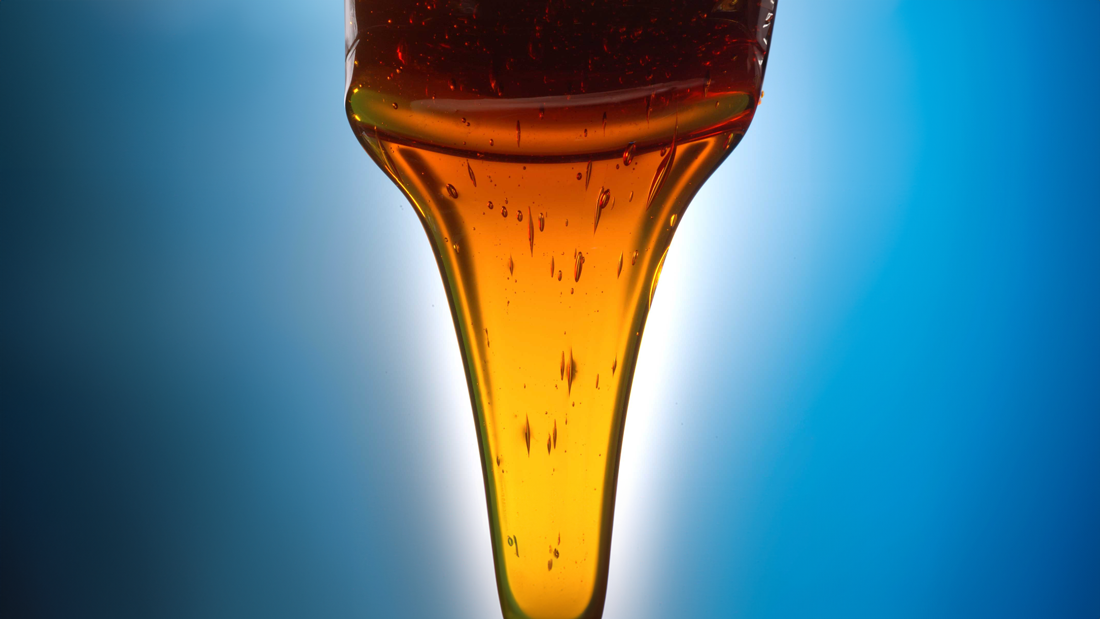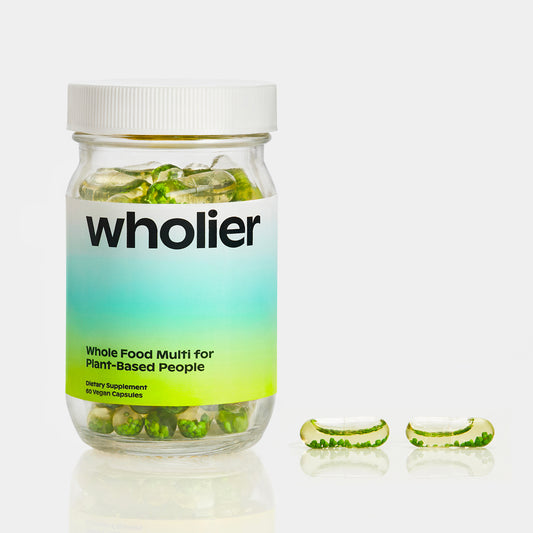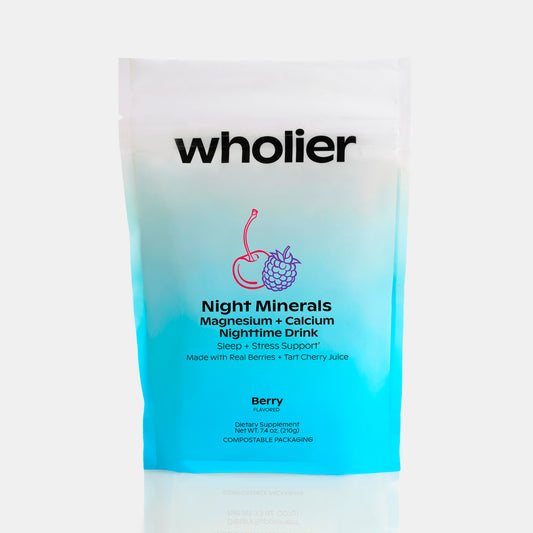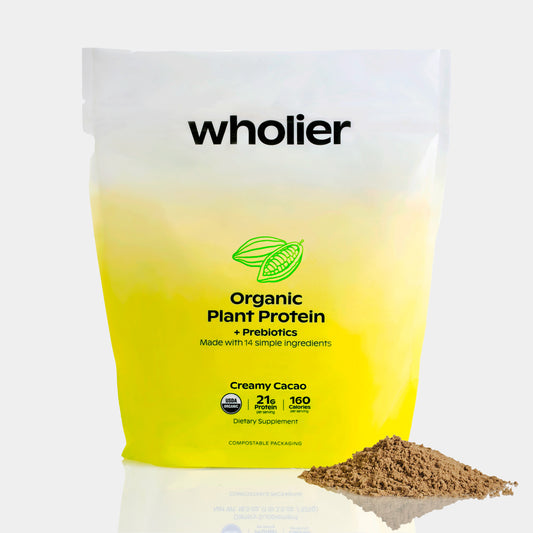
Behind the Label: The Truth About Soy Lecithin
As you pick up a packet of your favorite snack, a chocolate bar, or perhaps a salad dressing from the supermarket shelf, there's a good chance you'll come across an ingredient listed quite frequently: soy lecithin. This ingredient, while pervasive, raises some eyebrows and questions. What exactly is soy lecithin, and should you be concerned about its consumption?
What is Soy Lecithin?
Before delving into potential concerns, it's important to understand what soy lecithin actually is. In layman's terms, soy lecithin is a food additive that's extracted from soybeans (1). It primarily acts as an emulsifier, facilitating the mixing of oil and water, which typically prefer to stay apart (2). Its presence is quite ubiquitous, featuring in an array of foods—from baked goods to salad dressings, chocolates, protein powders and even margarine (3).
The controversy surrounding soy lecithin doesn't arise from its source (soy), which is a commonly consumed food, but rather from the process involved in its extraction and refinement (4).
How is Soy Lecithin Made?
The production process of soy lecithin starts with harvested soybeans, which are cleaned, cracked, and rolled into flakes (5). These flakes then undergo a solvent extraction process, during which chemicals, notably hexane, are used to separate the oil (6). The residue left after oil extraction is dried, allowing for lecithin to be separated from the remaining material. The final step involves bleaching the lecithin to remove its natural color (7).
While the term "chemical" often incites worry, it's important to note that not all chemical processes are inherently harmful. For example, the use of hexane in food processing is tightly regulated by health and safety authorities worldwide (8).
Could Soy Lecithin Trigger Allergic Reactions?
One of the major concerns regarding soy lecithin is its potential to cause allergic reactions in individuals with soy allergies. Although the American Academy of Allergy, Asthma & Immunology states that soy lecithin does not contain enough soy protein residues to provoke allergic reactions in most soy-allergic consumers (9), those with severe allergies should always consult with a healthcare provider or dietitian.
Are There Any Health Concerns Associated with Soy Lecithin?
The controversies surrounding soy lecithin are not limited to its manufacturing process and potential allergenic properties. Some concerns have been raised about its potential impact on hormonal balance. Soybeans contain phytoestrogens—plant-derived compounds that can mimic the effects of estrogen in the body. Some animal studies suggest that high intake of these phytoestrogens could lead to hormonal imbalances, although the relevance of these findings to humans remains controversial and needs more study (10).
There are also debates regarding genetically modified (GM) soybeans, which are often used in soy lecithin production. While GM foods are considered safe by many scientific and regulatory bodies, including the World Health Organization and the FDA, some people prefer to avoid them due to environmental and potential health concerns (11).
Could Soy Lecithin Be Good for You?
It's not all controversial, though. Some studies suggest potential health benefits of soy lecithin. For instance, research shows that it may help lower levels of low-density lipoprotein (LDL, or "bad" cholesterol) (12). Furthermore, a component in soy lecithin called phosphatidylcholine serves as a source of choline, a nutrient that's essential for brain health and function (13).
The Bottom Line: Is Soy Lecithin Bad for You?
Decoding whether soy lecithin is bad for you can be a bit tricky. Yes, it does come with certain caveats—such as its processing, potential allergenicity, phytoestrogen content, and its often genetically modified origins—that can be cause for concern. Conversely, soy lecithin has some potential health benefits to offer, such as its potential to lower "bad" cholesterol and its contribution to brain health.
For most people, an occasional intake of soy lecithin as an additive in various foods isn't likely to pose significant health risks. But here's the thing: soy lecithin is an additive. And as a rule of thumb, it's typically best to limit the consumption of additives and highly processed foods whenever possible. A diet focused on whole foods—fruits, vegetables, lean proteins, and whole grains—is generally a healthier choice. At the end of the day, good health hinges on balance, moderation, and choosing what fits your unique needs and body best.
Sources:
(1) Sirtori, Cesare R., and Elena Tremoli. “Phospholipids and High-Density Lipoprotein Cholesterol.” Annals of Medicine, vol. 22, no. 1, 1990, pp. 53–57.
(2) Gerstenmeyer, E., et al. "Soy Lecithin Analysis: Acetone-Insoluble Matter Fraction Using Automated Direct Saponification Method and Carbon Number Profiles of Fatty Acid Methyl Esters and Lyso-Phosphatidylcholine." Journal of Agricultural and Food Chemistry, vol. 61, no. 3, 2013, pp. 598–605.
(3) Dunne, Astrid, et al. "The Impact of Maternal Dietary Protein Restriction on Offspring's Food Preference in Early Postnatal Life." Physiology & Behavior, vol. 139, 2015, pp. 317–324.
(4) Frank, Kurtis, et al. "The Effect of Soy Isoflavones on Steroid Metabolism." Frontiers in Neuroscience, vol. 9, 2015, p. 242.
(5) Kuiper, Gerard GJM, et al. "Interaction of Estrogenic Chemicals and Phytoestrogens with Estrogen Receptor Beta." Endocrinology, vol. 139, no. 10, 1998, pp. 4252–4263.
(6) Fletcher, Reginald J. "Food Sources of and Dietary Intakes of Soy Isoflavones in a Group of High-Risk Prostate Cancer Patients." Nutrition and Cancer, vol. 67, no. 2, 2015, pp. 235–240.
(7) Pariza, Michael W., et al. "Evaluation of the Potential Carcinogenicity of Soybean Oil Fractions." Cancer Letters, vol. 18, no. 1, 1983, pp. 29–35.
(8) Bhathena, Sam J., and Meera G. Velasquez. "Beneficial Role of Dietary Phytoestrogens in Obesity and Diabetes." The American Journal of Clinical Nutrition, vol. 76, no. 6, 2002, pp. 1191–1201.
(9) Cederroth, Christopher R., and Serge Nef. "Soy, Phyto oestrogens and Metabolism: A Review." Molecular and Cellular Endocrinology, vol. 304, no. 1-2, 2009, pp. 30–42.
(10) Zeisel, Steven H., and Kerry-Ann da Costa. "Choline: An Essential Nutrient for Public Health." Nutrition Reviews, vol. 67, no. 11, 2009, pp. 615–623.
(11) Comerford, Kevin B. "Recent Developments in Multidisciplinary Approaches to Nutritional Problems." Progress in Food & Nutrition Science, vol. 5, no. 1, 2010, pp. 1–24.
(12) Cook, Michael T., and Adam S. Green. "The World Health Organization's Decision Making Body: Implications for Global Governance." Global Health Governance, vol. 2, no. 2, 2009, pp. 1–12.
(13) "Food Additives & Ingredients - Food Allergen Labeling And Consumer Protection Act of 2004 Questions and Answers." U.S. Food and Drug Administration, fda.gov, 2018.
(14) "Food Additives & Ingredients - Overview of Food Ingredients, Additives & Colors." U.S. Food and Drug Administration, fda.gov, 2010.
(15) Kuiper, Gerard GJM, et al. "Interaction of Estrogenic Chemicals and Phytoestrogens with Estrogen Receptor Beta." Endocrinology, vol. 139, no. 10, 1998, pp. 4252–4263.






